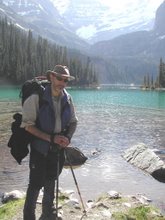I, like so many others who are not seeing a lot of sun
these days, have been struggling in the winter doldrums. Yesterday afternoon, I
drove over to the home of my friend Gina Horswood and her partner Atticus. They
were hosting a house concert for artist Corin Raymond, a Toronto singer
songwriter I’ve been wanting to meet since I first heard his music years ago. This
concert was a great reason to get out of the house for a few hours. For around
twenty years Corin was in a band with Sean Cotton, the man who lives five minutes
away from me, and recently finished producing four of my songs. As the winter
blues settled on this community like a damp, cold blanket, many of us needed a
little music therapy. In my opinion, Corin is one of the best Canadian songwriters
I’ve heard so far. He’s an excellent storyteller, a great word sculptor, and a
passionate and convincing singer. That I got to see him perform at Gina’s
house, to a receptive audience, was especially therapeutic. Gina and Christina
Hutt, another talented local singer songwriter accompanied me with killer
background vocals on my latest effort (produced by Sean) Watch For Wolves. Back to the house concert, these days I much prefer
to see these live, bare-bones performances in an intimate setting rather than at
a large venue. It makes me feel more connected to the artist. Had you told me
thirty years ago that I’d prefer this style of concert, I’d have laughed in
your face. I used to love stadium concerts.
After this early evening concert was over, I felt
strangely lighter. I’d shared this excellent performance with a small group of like-minded
music lovers, and I caught up with some of my friends in the music community. Generally, I felt like I’d been resuscitated from the blue flu. I harp a lot about the
increasing alienation emerging in a society at once improved and plagued by
technology. My friend Noah Zacharin and I spoke recently on the telephone about
the dying art of communication, and the fact that no one writes letters
anymore. I think there is an erosion in community that accompanies this
inability to communicate. I also believe that the universal communication music
provides is unifying, and by giving complete strangers common ground it creates a sense of community. It is why I am so supportive of
the radio station; by its existence, it builds a community. Good music
is something to be shared, and if it can make a group of complete strangers
happy, regardless of their race, color, or creed, isn’t that a good thing?
- Written by Jamie Oppenheimer c 2019 ALL
RIGHTS RESERVED





